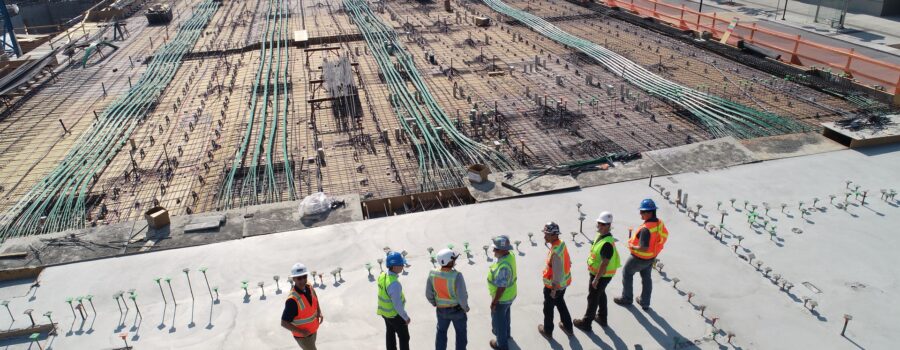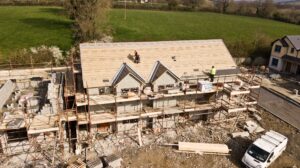
How To Defend Against Land Use Objectors
If you plan to develop a piece of land, there’s a possibility that one or more objections will be made about your project and what you intend to use the land for. Land use objections are and will always be part of the real estate industry. When an objection is made, it’s highly recommended that you know how to defend yourself against land use objectors.
With the right approach, you should be able to win your argument and continue with development as planned. Keep in mind that dozens of different objections could be made, which include everything from the proposed project blocking natural light to the project causing a loss of agricultural land. Knowing what land use objectors may object to could help you prepare for this eventuality.
When a land use objection is made, your project will invariably be delayed. However, your response to this objection can dictate if the delay is a short-term or long-term one. For instance, it’s possible for a land use objection to become a lawsuit. Even though people have the right to make these objections, you may be able to defend yourself against these objectors. The following takes a closer look at your options when defending your project from a land use objection.
Land Use Objections To Look Out For
Land use objections can be brought about in a wide range of different situations. In most cases, they will occur as oral and written arguments that are made to local decision-making bodies. These objections can also take the form of lawsuits that are designed to overturn a previous land use approval. If you find yourself in this situation, you will need to make a multi-tiered response. First, it’s important to address any concerns that the community has while also offering certain concessions that make the project more palatable.
In the event that a lawsuit is filed, it’s highly recommended that you hire a land use law practitioner or attorney to help you navigate the case. Your goal will be to show that the land use approval is fully valid and needs to be upheld. Keep in mind that a lawsuit can last for years, which means that your project will be delayed and costs will rise.

If you want to go on the offense when someone objects to your project or files a lawsuit, you should first take state and federal laws as well as the First Amendment into account. The First Amendment states that citizens have the right to petition the government, which means that a previous land approval could be objected to.
Since the First Amendment is in place, going on the offensive with your legal actions can be difficult. The person who files the lawsuit is legally protected for doing so. Even though the lawsuit may cost you a considerable amount of time and money, lawsuits for invalidating land use approvals are perfectly legal. You’re also unable to sue these individuals to cover the expenses associated with the previous case.
Even though it’s challenging to go on the offensive against a land use objector, it’s not impossible. The zoning ordinance for the area you plan to develop on should detail standards on how to apply for a rezoning application. This application may need to show several things.
First, the zone change must be consistent with the general plan for the area. For instance, this plan may state that an area needs to be preserved for low-density residential developments. It’s possible that seeking a zone change would be incompatible with the statement regarding low-density residential development. In this situation, it’s likely that the application would be denied. However, you may be able to obtain a plan amendment alongside the potential zone change that allows this change to occur in accordance with the general plan.
An applicant for a zone change might also be tasked with showing that a zone change is needed. You may be required to prove that a change in circumstances has occurred or that mistakes were made during the original zoning of the property.
The application could also require you to show that the zone change will remain consistent with any surrounding uses, which means that the properties values won’t go down for nearby homes or that existing development won’t be worsened once your project begins. When this requirement is in place, rezoning a residential area to an industrial area is practically impossible and would likely cause your application to be denied.

The zone change should be consistent with public service development as well. If the area you want to develop on doesn’t have any public services, changing the zone may not be allowed. It’s possible that you would be required to use land in another area of town. Another requirement on this application is that you prove that the change to zoning won’t cause substantial problems with nearby traffic.
Now that you know how to meet the criteria for a zone change application, there’s a good chance that your application won’t be immediately denied. Before you go forward with your project, make sure that you look into any state and federal laws that might apply to development. As mentioned previously, land use attorneys can assist you in navigating these issues and identifying laws that may apply to your land.
Planning Policy
Planning policy objections involve any objection that’s made on the basic of the local, state, or government land-use planning policies. These objections include:
- Prejudice against the comprehensive development of a specific area
- Not adhering to existing planning policy guidelines
- Conflicting with local plans or structure plans
Special Designation
A special planning designation can be made for a piece of land to conserve natural resources or to provide an area for public recreation. The most common special designation objections include:
- Inappropriate development on agricultural land
- The loss of trees in a conservation area
- Harming the landscape of a national park or national scenic area
- Conflicting with the overall character of a conservation area
- Threatening geological or wildlife features on a site of scientific interest
- Damaging architectural or historic value of a building
- Harming the setting of a building
- Damaging or destroying archeological monuments or remains

Planning History
There may be a history of land use objections in the area that you plan to develop on, which means that the same objections might still be made. Some of the more common planning history objections include:
- Not adhering to an inspector’s views with a previous appeal decision
- Being incompatible with the current planning permission
- Reducing the amount of housing available during a housing shortage
- Previous applications have been refused with no changes to circumstances
Site Considerations
Site considerations center around issues with the piece of land that the project is being developed on. The most common objections involving site considerations include:
- Too much scale or bulk
- Not enough private space
- Not enough amenity or garden land
- Over development issues
- Loss of essential hedges, trees, or vegetation
- Not being compatible with the design philosophy of existing buildings
- Damaging existing or natural contours
- Creating unnatural features
- Not enough parking spots
- Blocking a public right of way
- Loss of wildlife habitats
- Failing to meet on-site standards
- Causing harm to rare animals or plants
- Destroying standard field patterns
- Poor public sewers
- Causing the loss of agricultural land
- Creating a flood risk
- Health threats because of previous contamination
Neighbors
There’s a possibility that the project you plan to develop will lead to issues with nearby neighbors, which could be the source of the objection. Potential neighbor objections include:
- The project overlooks adjoining properties
- Too much noise, smells, and pollution are generated
- Development is set to occur during unsociable hours of operation
- Natural daylight is being blocked

Surrounding Area
These potential objections are made when someone believes that the development will create issues with the area surrounding the property. These issues involve everything from a potential loss of open spaces to an inadequate road system. The full list of surrounding area objections include:
- Conflicting with current development patterns
- Environmental damage that’s caused by vehicles
- Conflicting with the specific character of the surrounding area
- Having a poor relationship with any adjoining buildings
- Causing inconveniences for pedestrians
- Poor road system
- Loss of open spaces
- Issues with highway safety
- Having an adverse affect on the rural economy
- Losing a historic street pattern
- Having an adverse affect on nearby businesses or the local economy
- Balancing issues between homes and jobs
- Threatening the vitality and viability of the town center
- Causing a loss of employment
- Not meeting local housing needs
- A better site is available
No matter how your piece of land is being developed, there’s always a possibility that one or more objections will be made before you can even begin development. These objections can state that development will block a right of way or that the project will cause property values in the surrounding area to drop considerably. Even though an objection may lead to delays with development, hiring a land use attorney should help you resolve these issues in a timely manner.

Jason Somers, President & Founder of Crest Real Estate
With over 15 years of professional experience in the Los Angeles luxury real estate market, Jason Somers has the background, judgement and track record to provide an unparalleled level of real estate services. His widespread knowledge helps clients identify and acquire income producing properties and value-ad development opportunities.
Learn more about Jason Somers or contact us.



